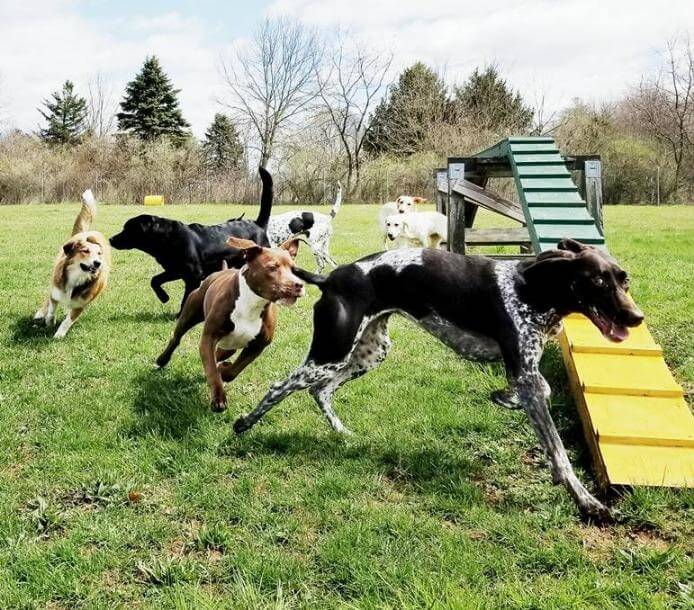
Home » Trifecta | Stephanie Hedgepath

Interview with Herding Group Breeder Stephanie Hedgepath
Where do I live? How many years in dogs? How many years as a breeder?
Stephanie Hedgepath: I live in Lexington, South Carolina. I’ve been in dogs for 53 years, 50-plus as a breeder.
What is my kennel name? How many dogs do I currently keep?
Stephanie Hedgepath: TRIFECTA (previously JIMANIE) is our kennel name. We keep between 7-15 dogs. I have two partners, Denise Scott and Jane Will, who keep some of these dogs permanently, and we rotate them as needed for showing or whelping.
Which show dogs from the past have been my noteworthy winners?
Stephanie Hedgepath: I have put titles on over 100 Pembroke Welsh Corgis, and I have campaigned only one dog in my lifetime in the fancy. She has been the #1 Pembroke in America since January 2021.
Which have been my most influential sires and dams?
SIRES: CH Corgard Jimanie Simply the Best, CH Llandian Super Sweet, CH Llyswen Foreign Affair at Rumney (Import, UK), CH Jimanie’s Phantom of the Opera, and AU CH Trehilyn Don’t Hold Back ROMX (Import AU).
DAMS: CH Caralon’s Chelsey of Horoko, Trifecta Dress Rehearsal BN TT TDI CGC STDD, GCH CH Woodsedge Brynlea Bastille My Heart ROM, and GCH CH Trifecta EZ Brie Z.
Can I talk a bit about my facilities? Where are my puppies whelped? How are they raised?
Stephanie Hedgepath: Puppies are whelped in my guest bathroom (the only room in the house that I can get the temperature up to 85-90 degrees Fahrenheit)! When they are weaned, the puppies are moved into the kennel. The kennel is a heated and air-conditioned pole building, with a total of seven inside/outside covered runs. The kennel consists of a small office, the main kennel room, and a separate room for puppies, bathing, and feeding. Adjoining the puppy runs outside is a 25’ by 25’ puppy “play yard” of grass, partly shaded, with obstacles and outdoor toys that the pups can access when the weather permits.
What is my “process” for selecting show puppies? At what age do I make my decisions?
Stephanie Hedgepath: We watch the pups from birth, and do everything one should do to socialize them throughout the various puppy stages to develop their personalities and get them off on the right foot. I do ENS (early neurological stimulation) as best explained by Carmen Battaglia (https://breedingbetterdogs.com/article/early-neurological-stimulation), and we handle the pups daily. We do the Volhard temperament test and our structural evaluation at around eight weeks of age—often having a “puppy party” with friends. By that time, the pups have started to walk on a lead, and we begin to evaluate their movement, even though I know they are just starting to develop their muscles, and, as they age, their movement will improve. We determine which pups we can let go of and which we will run on further. We do not sell our puppies before 10-12 weeks of age, as a pup (especially Working/Herding Dogs) should stay with their littermates until that time to learn social manners and bite inhibition.
How do I prepare my pups for the show ring? Does my breed require any special preparation?
Stephanie Hedgepath: We make sure they have all of the experiences and socialization possible from the very beginning of their lives. We treat each pup as if it will be a show puppy, and they all get the same handling and training before going to their new homes. The pups that we keep go to Trifecta partner, Jane Will, who continues the puppies’ socialization and trains them for the show ring. When the pups are weaned and moved to the kennel, we start to work the pups on the table (stacking and grooming).
Is my breed hand-stacked or free-stacked in the show ring? Why is it presented in this manner?
Stephanie Hedgepath: They are hand-stacked on the table (as they are certainly a table breed), and we show them free-stacked on the floor. The dog should be examined by the judge on the table, but only judged when on the ground. A Pembroke Corgi is taught to stand on its own and is walked into a show stance. (As Leah James has been known to say, they should not be “propped up and prayed over.”) They should be taken on a loose lead on the go-around to show what should be a balanced, easy side gait with a firm, level, QUIET back in motion. We do this by not stringing the dog up.
Are Performance and Companion titles important to me as a breeder? Are parent club titles?
Stephanie Hedgepath: Yes, they are very important to me. I breed for a dog that can do anything asked of it! Pembroke Corgis are a breed that should be smart, easy to teach, athletic, and agile. Many of the dogs I have bred have gone on to earn many performance titles, from tracking to herding to obedience and agility. Not every dog has herding instincts, and it has always been thus in any Herding breed. We try to test the herding instinct in our pups if given the opportunity. I always hope to have a dog or bitch produce enough champions to earn the Register of Merit (ROM) or Register of Merit Excellent (ROMX) title offered by the PWCCA, but it is not a primary goal.
In my opinion, is my breed in good condition overall? Any trends that warrant concern?
Stephanie Hedgepath: The Pembroke Welsh Corgi developed from a scruffy little farm dog to a rather elegant breed with a lovely head and kind expression. Like all breeds, we have a problem with fronts that are too upright and placed too far forward on the chest. This fault is apparent when the dog is in motion and the backline bounces up and down, wasting energy. The much sought-after rectangular profile of a Pembroke Corgi depends upon a well-angled forequarter (a dwarf breed should have a 90-degree shoulder/upper arm angulation) matched by the same angles in the rear pelvis/upper thigh articulation. They should be shown at a collected trot—meaning NOT being raced around the ring, forcing the dog into an extended trot. This may look flashy, but it tends to point out (and make worse) any faults that cause vertical motion in the backline when the dog is moving.
Is my breed well-suited to be a family dog? Who are the best candidates to own my breed?
Stephanie Hedgepath: Yes! Well-bred Pembroke Welsh Corgis can make ideal family pets. As in all litters, there is a range of personalities in the pups, but what responsible breeders try to do is breed puppies neither too dominant (bossy) or too submissive (soft and easily intimidated); more right in the middle of that range. You will have to be careful that a pup with a higher drive will be more suitable for a family with a very active lifestyle, yet a softer puppy would be better for a family with a more relaxed lifestyle. They can be excellent with children if the parents do not let the children overwhelm the puppy. Many breeders will not place a puppy in a home (especially if this is their first dog) with a child under five years of age. Because the Pembroke Corgi is a Herding Dog, we screen very carefully and try to get more familiar with the people who are being seriously considered for one of our pups.
Do you feel that your breed is supported by a sufficient number of preservation breeders?
Stephanie Hedgepath: Yes, I do. We have developed a worldwide community of serious breeders, and I hope that more breeders will start paying attention to the complete dog and not emphasize the head of the dog. Yes, we have specific traits in our standard for the head/eyes/ears, etc. Yes, we want a beautiful head. Let us just not overdo it to the point that the rest of the dog looks somewhat like a caricature in a cartoon.
For a bit of fun, what’s the most amusing thing I’ve ever experienced with a Herding Dog?
Stephanie Hedgepath: We took a litter of seven-week-old pups to the farm to check for herding instinct on ducks. We brought along some older pups and adults. While we were testing the puppies, one of the yearling pups went out into the field on his own with the Border Collie and started helping her move the sheep! We happened to look up and were shocked at how easily “Talon” had picked up the process! We were waiting to test him next and realized we no longer had to do so.
Anything else I would like to share about myself? Any special message I have for all of us in the fancy?
Stephanie Hedgepath: Please take breeding seriously. Our dogs were developed for a purpose, even if it was to sit on someone’s lap and be adored. Never lose sight of the working ability of your dogs. They may never visit a farm or see a cow in their lifetime, but they should still be able to do what they were bred to do. Health and temperament are always top priorities. A dog that isn’t well or has a bad temperament cannot be a good pet, much less a good show dog.
You must also realize that a judge has to choose the dog that most closely resembles the standard. We are to judge dogs, not people. If you do not win, it does not mean the judge doesn’t like your dog. We are there to evaluate and judge breeding stock. The dog that we would choose for a stud dog or our whelping box is the one that should win. Do not take it personally if you do not win on any particular day—there is always another show coming soon. If you have a good dog, the judges will find him. But be sure to have the dog trained to show! Judges cannot judge a dog that we cannot evaluate; both when standing for an exam and in motion. Above all, have fun! You get to go out and do things with your beloved pet. Win or lose at the dog show, remember how fortunate you are to get to take that dog who loves you so very much home with you.
